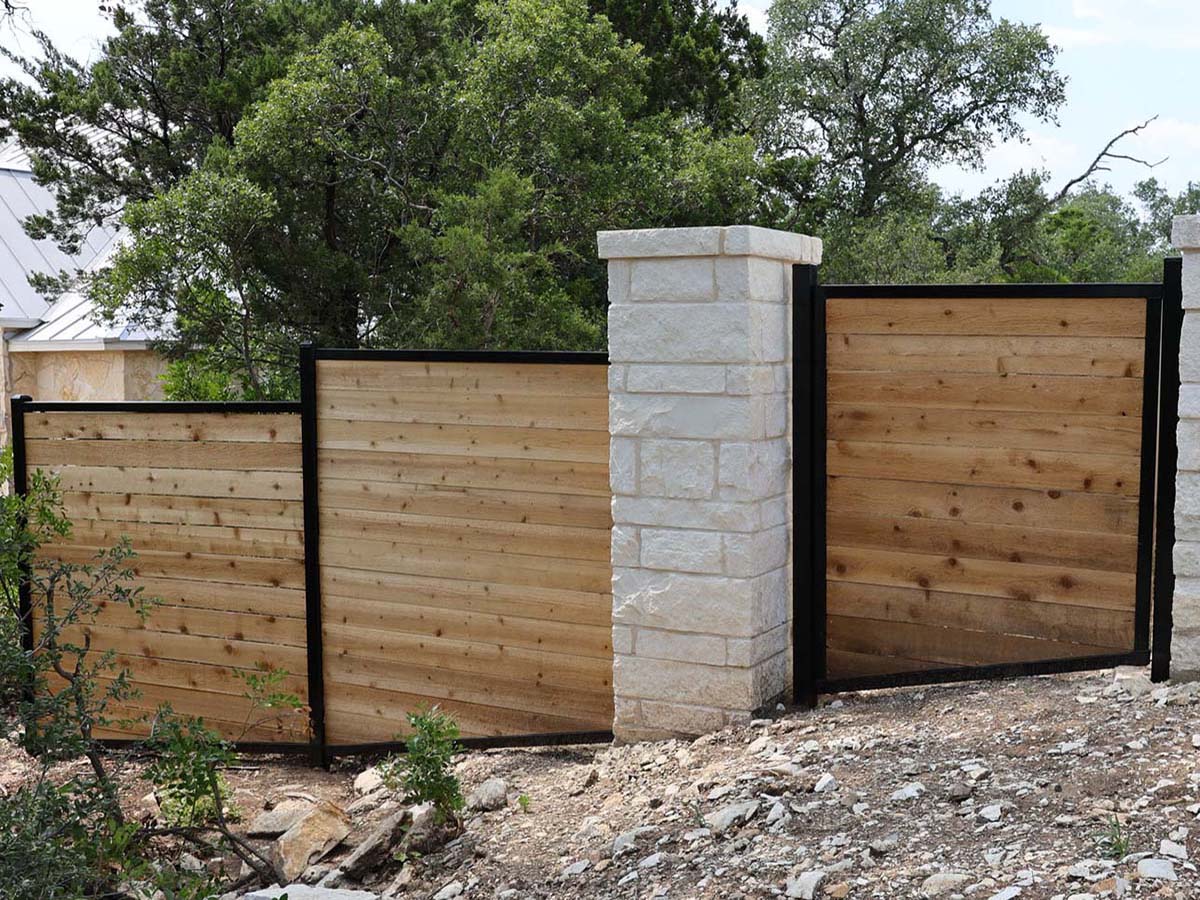All Categories
Featured

Picking the right secure fencing material is important for achieving the balance of toughness, aesthetic appeals, and performance that fits your property. Wood, plastic, and aluminum are prominent choices, each with distinct functions that provide to particular needs. Here's a thorough consider the advantages and disadvantages of these three products.
Timber Secure Fencing. Pros:. Classic Charm: Timber uses a natural, timeless appearance that matches different building designs. Personalized: It can be painted or tarnished in a range of design and colors. Budget-friendly: Wood fencings are often more affordable ahead of time than vinyl or light weight aluminum. Eco-Friendly: As a renewable energy, timber is sustainable and naturally degradable when sourced properly. Cons:. Maintenance-Intensive: Needs normal discoloration, paint, or securing to protect against climate and insects. Much Shorter Lifespan: Depending upon the kind of timber and climate, it generally lasts 10-15 years. Susceptability to Damages: Prone to deteriorating, bending, and termite damages without proper treatment. Wood is ideal for house owners who value looks and agree to invest time and initiative in maintenance to extend its life.
Vinyl Fence. Pros:. Resilient: Immune to pests, rot, and weather, vinyl maintains its structure in severe problems. Reduced Maintenance: Requires little maintenance beyond occasional cleaning. Long Lifespan: Vinyl can last 20-30 years without considerable wear or damage. Flexible Layouts: Readily available in various shades, appearances, and designs, including choices that mimic wood. Disadvantages:. Expensive Installment: Plastic fencings are extra pricey to mount contrasted to wood. Weak in Winter: Plastic can split in extreme chilly climates. Hard to Fixing: If harmed, entire sections may need substitute, which can be challenging to match. Vinyl fencing is a fantastic choice for those prioritizing longevity and very little maintenance, also if it comes with a higher ahead of time expense.

Aluminum Fencing. Pros:. Rust-Resistant: Light weight aluminum does not corrosion, making it ideal for damp or humid locations. Lightweight however Solid: Deals stamina without being overly hefty, which simplifies setup. Low Maintenance: Requires little bit even more than cleansing and occasional repainting. Longevity: Aluminum fencings can last for years without considerable degeneration. Stylish Styles: Commonly made use of for decorative purposes, aluminum includes elegance to any type of residential property. Disadvantages:. High First Cost: Light weight aluminum fences are amongst the more pricey alternatives. Limited Personal privacy: Commonly made with open spaces, they don't obstruct views or sound. At risk to Dents: While durable, aluminum can be dented or bent with hefty impact. Light weight aluminum is ideal suited for those that desire a resilient, elegant fencing and do not require total personal privacy.
Making the Right Option. Each product has its strengths and weaknesses:

Timber is excellent for conventional appearances and eco-conscious purchasers who do not mind upkeep. Plastic works for home owners seeking a weather-resistant, low-maintenance remedy. Aluminum is a durable, ornamental alternative for those who desire beauty and long life. Consider your top priorities-- whether it's expense, look, upkeep, or privacy-- and get in touch with a fence expert to select the material that ideal fulfills your demands. A well-selected fencing will certainly improve your property for many years to come.
Latest Posts
Uncover Reduce Expenses on Car Maintenance with Montclare Auto Repair’s Special Deals
Published en
1 min read
Explore Your Wyoming Banking Partner – Your Path to Superior Financial Services in Wyoming
Published en
1 min read
Discover Your Financial Partner at WyHy – Key Advantages for Your Future
Published en
1 min read
More
Latest Posts
Uncover Reduce Expenses on Car Maintenance with Montclare Auto Repair’s Special Deals
Published May 28, 25
1 min read
Explore Your Wyoming Banking Partner – Your Path to Superior Financial Services in Wyoming
Published May 26, 25
1 min read
Discover Your Financial Partner at WyHy – Key Advantages for Your Future
Published May 23, 25
1 min read